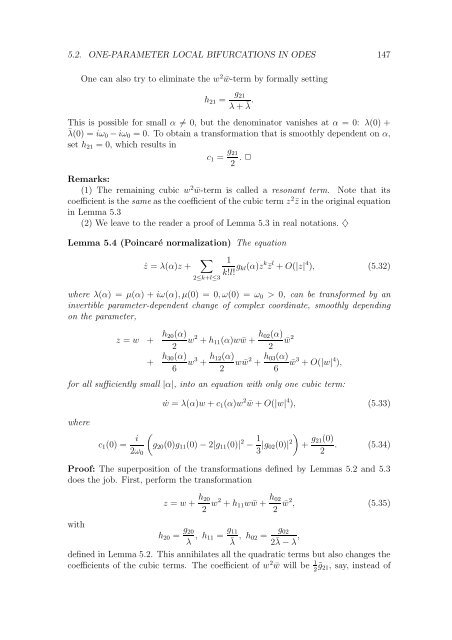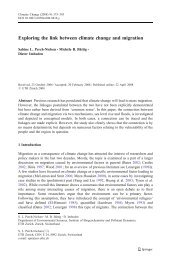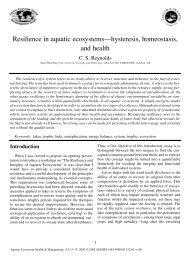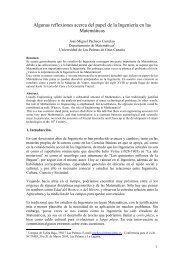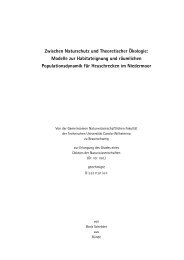5.2.2 Planar Andronov-Hopf bifurcation
5.2.2 Planar Andronov-Hopf bifurcation
5.2.2 Planar Andronov-Hopf bifurcation
Create successful ePaper yourself
Turn your PDF publications into a flip-book with our unique Google optimized e-Paper software.
5.2. ONE-PARAMETER LOCAL BIFURCATIONS IN ODES 147<br />
One can also try to eliminate the w 2 ¯w-term by formally setting<br />
h 21 = g 21<br />
λ + ¯λ .<br />
This is possible for small α ≠ 0, but the denominator vanishes at α = 0: λ(0) +<br />
¯λ(0) = iω 0 − iω 0 = 0. To obtain a transformation that is smoothly dependent on α,<br />
set h 21 = 0, which results in<br />
c 1 = g 21<br />
2 . ✷<br />
Remarks:<br />
(1) The remaining cubic w 2 ¯w-term is called a resonant term. Note that its<br />
coefficient is the same as the coefficient of the cubic term z 2¯z in the original equation<br />
in Lemma 5.3<br />
(2) We leave to the reader a proof of Lemma 5.3 in real notations. ♦<br />
Lemma 5.4 (Poincaré normalization) The equation<br />
ż = λ(α)z +<br />
∑<br />
2≤k+l≤3<br />
1<br />
k!l! g kl(α)z k¯z l + O(|z| 4 ), (5.32)<br />
where λ(α) = µ(α) + iω(α), µ(0) = 0, ω(0) = ω 0 > 0, can be transformed by an<br />
invertible parameter-dependent change of complex coordinate, smoothly depending<br />
on the parameter,<br />
z = w + h 20(α)<br />
w 2 + h 11 (α)w ¯w + h 02(α)<br />
¯w 2<br />
2<br />
2<br />
+ h 30(α)<br />
w 3 + h 12(α)<br />
w ¯w 2 + h 03(α)<br />
¯w 3 + O(|w| 4 ),<br />
6 2<br />
6<br />
for all sufficiently small |α|, into an equation with only one cubic term:<br />
ẇ = λ(α)w + c 1 (α)w 2 ¯w + O(|w| 4 ), (5.33)<br />
where<br />
c 1 (0) =<br />
i (<br />
g 20 (0)g 11 (0) − 2|g 11 (0)| 2 − 1 )<br />
2ω 0 3 |g 02(0)| 2<br />
+ g 21(0)<br />
. (5.34)<br />
2<br />
Proof: The superposition of the transformations defined by Lemmas 5.2 and 5.3<br />
does the job. First, perform the transformation<br />
z = w + h 20<br />
2 w2 + h 11 w ¯w + h 02<br />
2 ¯w2 , (5.35)<br />
with<br />
h 20 = g 20<br />
λ , h 11 = g 11<br />
¯λ , h 02 = g 02<br />
2¯λ − λ ,<br />
defined in Lemma 5.2. This annihilates all the quadratic terms but also changes the<br />
coefficients of the cubic terms. The coefficient of w 2 ¯w will be 1 ˜g 2 21, say, instead of


